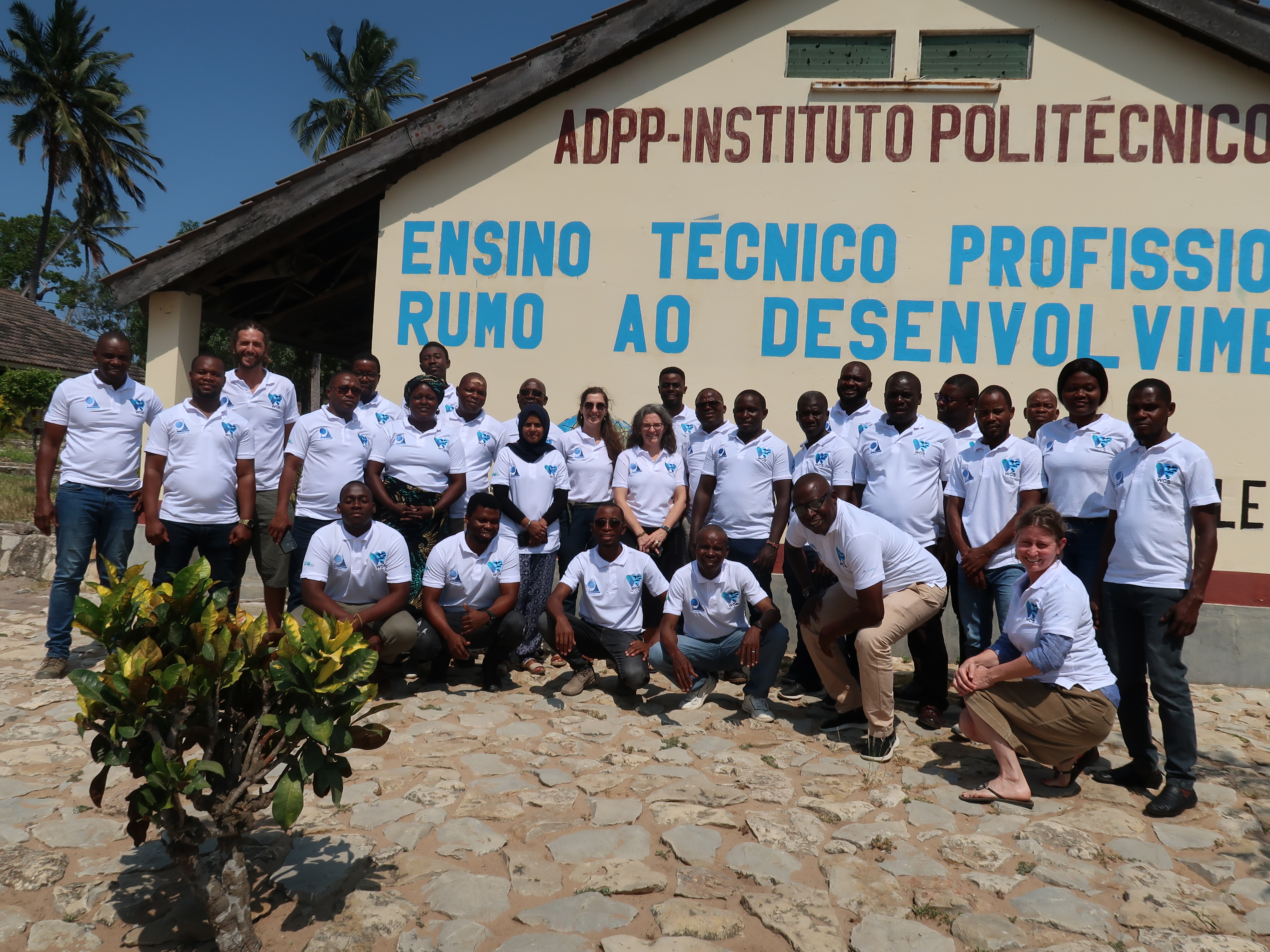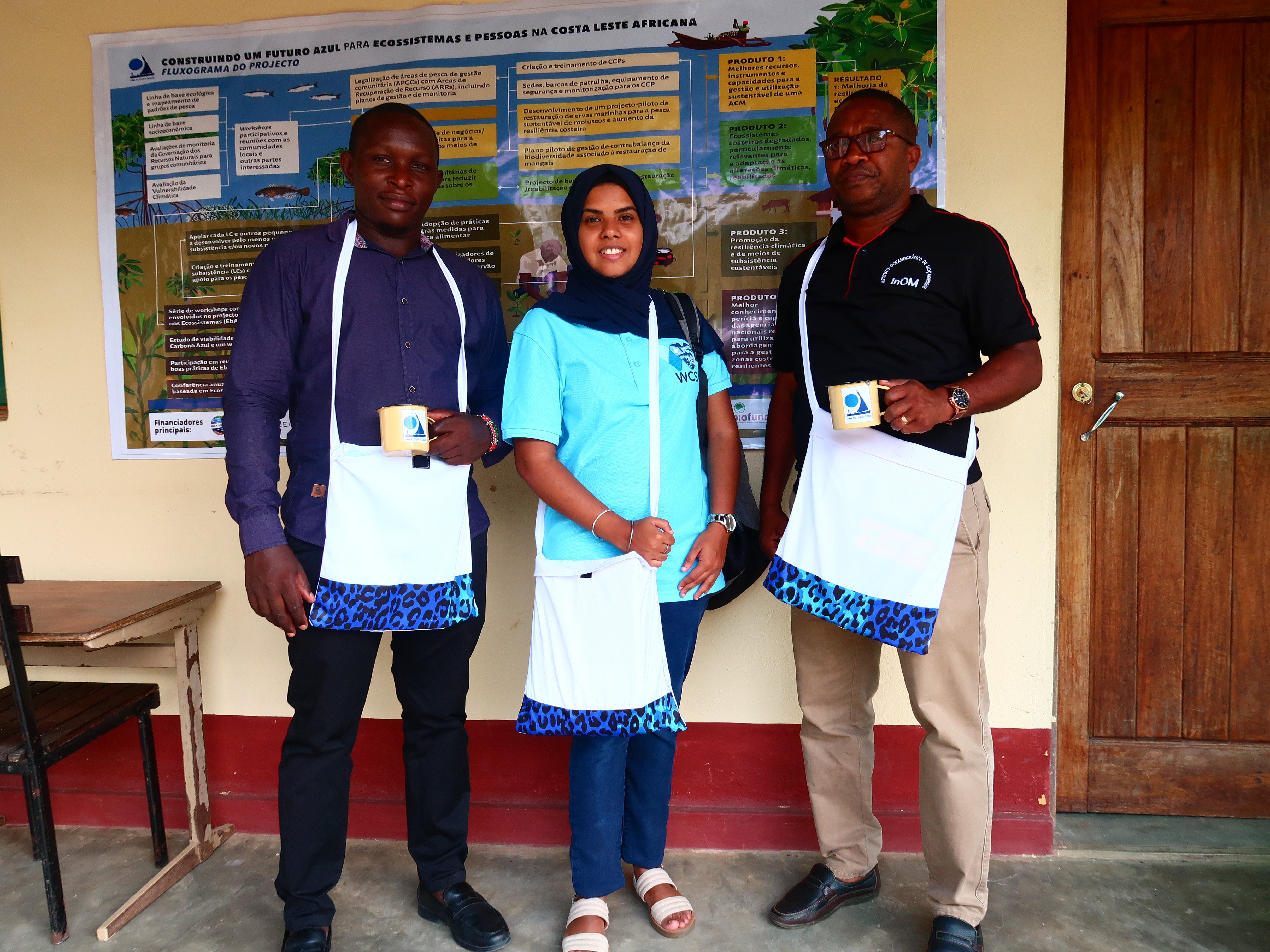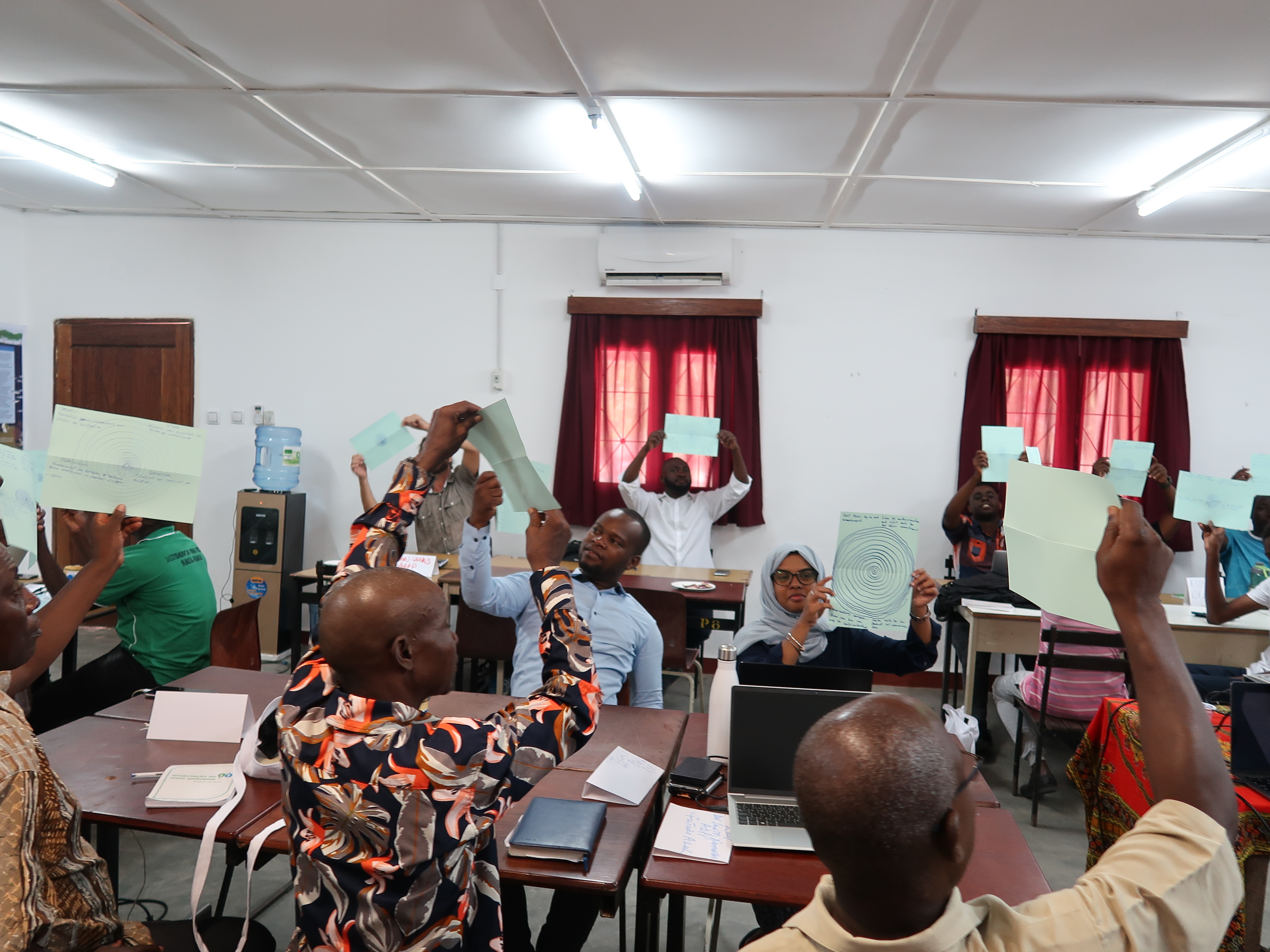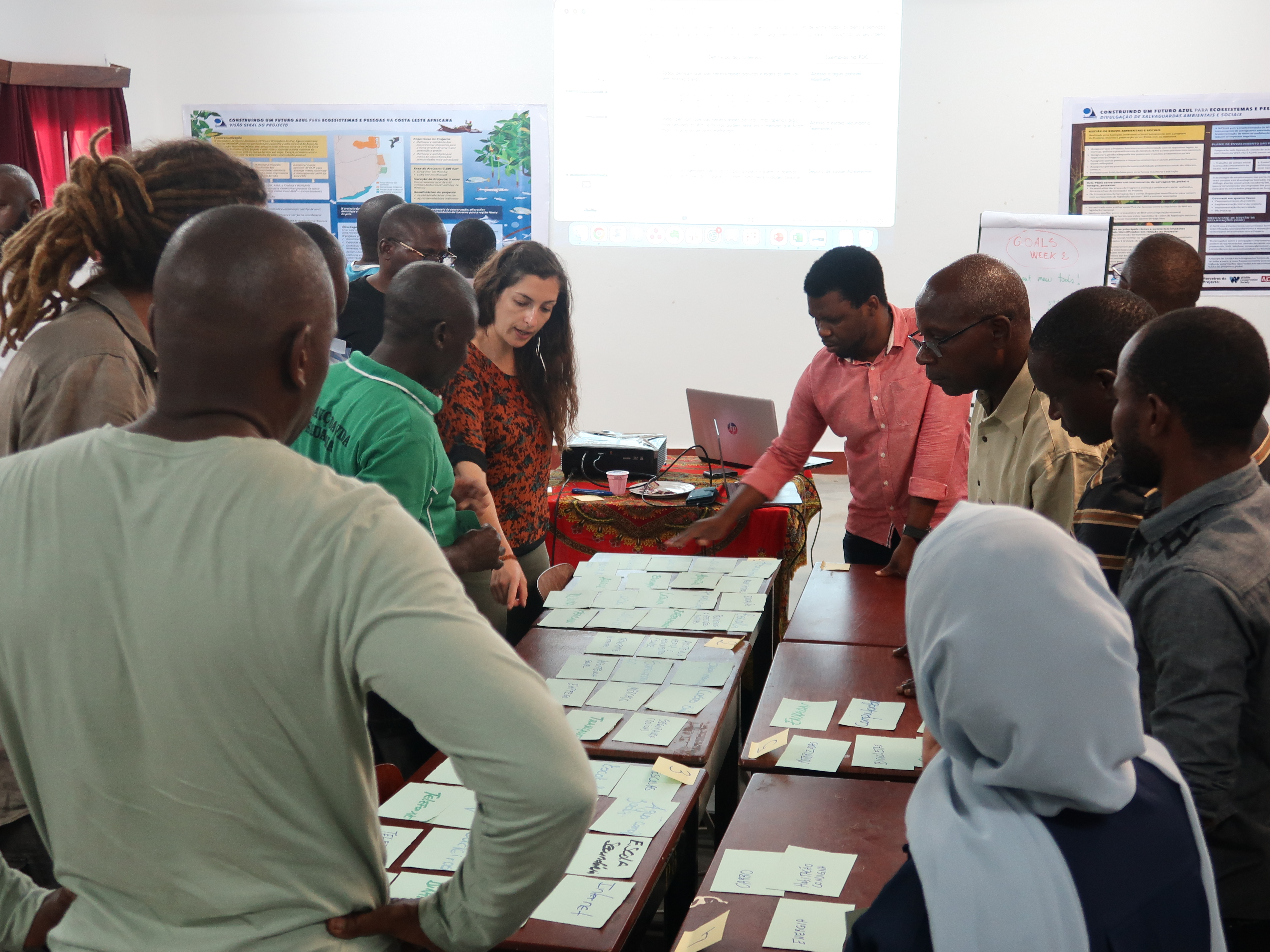WCS brought together for a fortnight its partners of the project Building a Blue Future for Ecosystems and People on the East African Coast (Blue Future), to train the project team on issues that are considered determinant and that WCS always considers in its projects, namely the social and environmental safeguards that must be implemented throughout the project, as well as specific methodologies for interaction with communities. The 2-week event is taking place between 8 and 18 November 2022, at the premises of the partner Ajuda de Desenvolvimento de Povo para Povo (ADPP), Bairro Muzuane in Nacala, where the Blue Future project office is based.

The training consists of a training of trainers that will allow, in the future, the teams in the field to receive from these trainers fundamental skills to carry out work that is as beneficial as possible for the communities, seeking to ensure the reduction of collateral negative impacts that may exist.

The main topics covered are i) the Environmental and Social Management System (ESMS) with all its environmental and social safeguards and ii) Community Involvement Strategies, such as the Basic Needs Survey (BNS) and the Natural Resource Governance Tool (NRGT). The training is delivered by WCS international experts (Heidi Kretser, Diane Detoeuf and Michelle Wieland), and covers the WCS Regional and National teams, the implementing partners of the Blue Future project, namely ADPP, the Association for the Environment (AMA), Eduardo Mondlane University (UEM) and the Oceanographic Institute of Mozambique (InOM). It also includes other key partners such as the National Fisheries Administration (ADNAP), representing the Ministry of Sea Interior Waters and Fisheries, and the fisheries extension workers from the District Services of Economic Activities of Memba and Mossuril.

The training aims to ensure that the teams gain capacity to identify all relevant stakeholders, establish processes to track their involvement throughout the life of the project and are confident in implementing safeguards such as Free, Prior and Informed Consent, Mitigation of Access Restrictions and Grievance Redress Mechanisms within a rights-based conservation approach.

The Blue Future project is co-funded by the Blue Action Fund (BAF), Green Climate Fund, Margaret A. Cargill Philanthropies (MACP) and Oceans 5, among other donors.